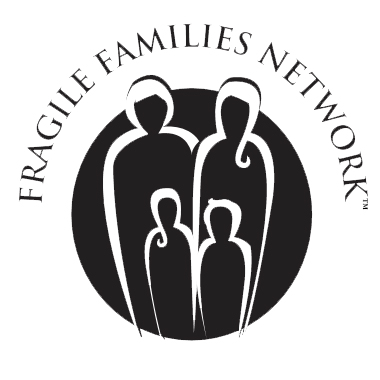Deportation: The Role of Grandfamilies in Supporting Immigrant Children

The issue of deportation has increasingly affected families across the United States, bringing to light the complex and multifaceted challenges faced by immigrant communities. When a parent is deported, children often find themselves in a precarious situation, suddenly thrust into a new living arrangement. One common outcome is the formation of grandfamilies, where grandparents or other relatives step in to provide care and stability. This arrangement, while offering a lifeline to children in crisis, also underscores the unique difficulties these families face. Understanding these complexities is crucial for offering effective support and advocacy.
The Impact of Deportation on Families
Deportation is a traumatic event that can have far-reaching consequences for the entire family. When a parent is deported, children may experience a range of emotional, psychological, and practical challenges, including:
- Emotional and Psychological Trauma:
- Separation Anxiety: The sudden separation from a parent can cause severe anxiety and emotional distress for children. They may experience feelings of abandonment, confusion, and fear for their parent’s safety.
- Identity and Belonging: Children in immigrant families may struggle with issues of identity and belonging, particularly when their cultural and familial connections are disrupted.
- Legal and Custodial Challenges:
- Custody and Guardianship: Without the presence of a parent, securing legal custody or guardianship can be a complex process. Grandparents or other relatives may face legal hurdles in gaining formal recognition as caregivers.
- Immigration Status: The children themselves may be U.S. citizens, while their caregivers may not be. This discrepancy can complicate access to resources and services.
- Economic and Financial Strain:
- Loss of Income: The deportation of a primary breadwinner can plunge a family into financial instability. Grandparents or other relatives may struggle to provide for the children’s needs on limited incomes.
- Housing and Stability: Ensuring stable housing can become a significant challenge, particularly if the deported parent was contributing to housing costs.
The Role of Grandfamilies
In the face of these challenges, grandfamilies play a crucial role in providing care and stability to children affected by deportation. These families step in to fill the void left by the deported parent, offering a familiar and supportive environment. Key aspects of their role include:
- Emotional Support:
- Providing Stability: Grandfamilies offer a sense of continuity and stability during a tumultuous time. Maintaining family traditions and cultural practices can help children feel secure and connected.
- Counseling and Therapy: Access to mental health services is essential. Grandfamilies can seek counseling and therapy for children to help them process their emotions and cope with the trauma of separation.
- Legal and Advocacy Support:
- Navigating Legal Systems: Grandfamilies often need assistance navigating the legal complexities of custody and guardianship. Legal aid services can provide essential support in securing the necessary legal status.
- Advocacy and Rights: Understanding and advocating for their rights within the immigration and child welfare systems is crucial for grandfamilies. Organizations that specialize in immigrant and family rights can offer valuable resources and support.
- Economic Assistance:
- Financial Aid: Access to financial assistance programs, such as Temporary Assistance for Needy Families (TANF), Supplemental Security Income (SSI), and food assistance, can help alleviate economic strain.
- Employment and Housing Support: Programs that offer job training, employment opportunities, and housing assistance can provide much-needed stability for grandfamilies.
Addressing the Unique Needs of Grandfamilies in the Context of Deportation
To effectively support grandfamilies caring for children affected by deportation, a multifaceted approach is necessary. This involves:
- Comprehensive Support Services:
- Mental Health Services: Providing accessible mental health services for both children and caregivers is essential for addressing the emotional impact of deportation.
- Educational Support: Ensuring that children have access to educational resources and support, including tutoring and mentorship, can help mitigate the academic disruptions caused by deportation.
- Community and Cultural Connections:
- Community Support Networks: Building strong community support networks can provide a sense of solidarity and practical assistance. These networks can include support groups, cultural organizations, and faith-based communities.
- Cultural Competency: Service providers should be trained in cultural competency to understand and respect the diverse backgrounds and experiences of immigrant families.
- Policy Advocacy and Reform:
- Legal Advocacy: Advocating for policies that protect the rights of immigrant families and provide pathways to legal status for caregivers is crucial. This includes pushing for comprehensive immigration reform that takes into account the needs of mixed-status families.
- Child Welfare Policies: Ensuring that child welfare policies recognize and address the unique circumstances of grandfamilies affected by deportation can lead to better support and outcomes for these families.
The formation of grandfamilies due to the deportation of a parent highlights the complex and multifaceted challenges faced by immigrant families. Health and human service professionals, policymakers, and community organizations must work together to provide comprehensive support that addresses the emotional, legal, financial, and educational needs of these families. By recognizing and responding to the unique circumstances of grandfamilies, we can help ensure that children affected by deportation receive the care and stability they need to thrive. Through a combination of tailored services, community support, and advocacy, we can create a more supportive environment for all families navigating the challenges of deportation.
©2024 Fragile Families NETWORK







